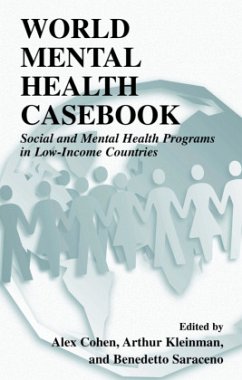In the past dozen years, the field of international mental health has been transformed from a sub-discipline that attracted only a handful of anthropologists, psychiatrists, and psychologists, into a field that has now become a major concern in international public health. The World Mental Health Casebook will serve as a resource for those engaged in the widening efforts to address the burden of mental disorders in low-income countries. The case studies contained here describe: the "Shanghai Model" of psychiatric rehabilitation for persons with schizophrenia, an extraordinary mental health program for poor patients in Lima, Peru who are undergoing treatment for multi-drug resistant tuberculosis, how Guatemalan refugee women in Mexico were trained to become mental health promoters, the development of mental health services in primary care settings in Nepal, the attempts to improve the lives of women in India through literacy programs, the radical reform of psychiatric services in Trieste, Italy, and research from Fiji and Hong Kong that shows how traditional practices can lower the prevalence of post-partum depression. Each case history, through concrete and pragmatic examples, offers lessons that can inform the functioning of services elsewhere. In general, the Casebook, will also encourage others to undertake careful documentation and evaluation of programs so that the mistakes of the past can be avoided, and the successes replicated.
From the reviews: "This book is ... on mental health from a global perspective. ... the book provides a welcome break from the mainstream psychiatric literature in its effort to document mental health issues relevant to the vast majority of the world's population living in low- and middle-income countries. ... I enjoyed reading this book ... . I recommend this book to anyone interested in the evaluation of mental health-care programs in developing countries." (Vikram Patel, Transcultural Psychiatry, Vol. 41 (2), June, 2004)








